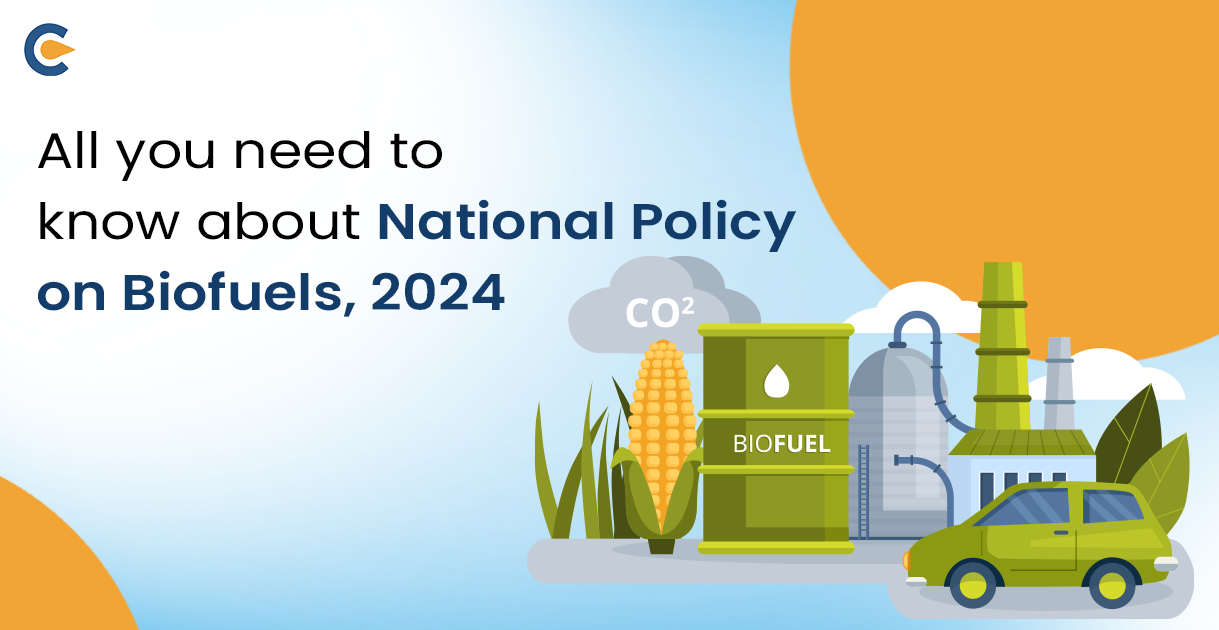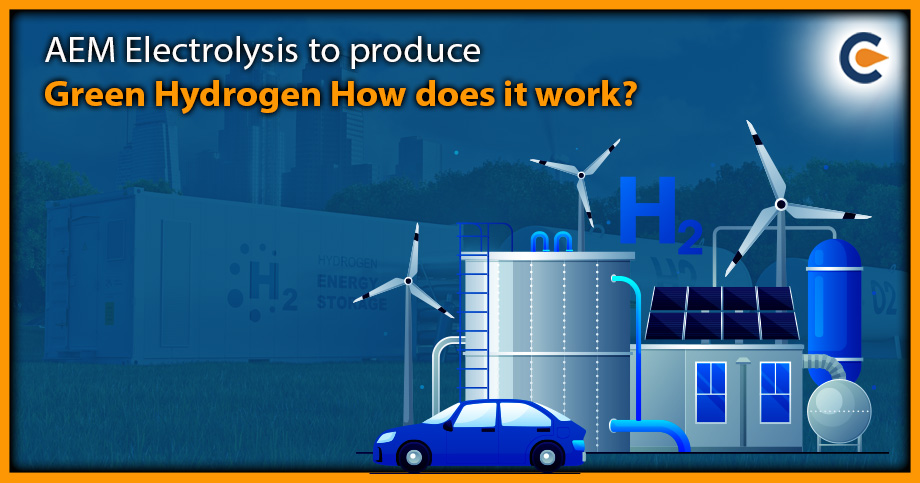Biofuels are technology-refined and enhanced fuels that are derived from the biomass of plant and animal refuse. Such feedstock is readily available and effectively used by processing them and channelling their stored energy. Biofuels are considered renewable energy since they can be readily reproduced and processed to make conventional energy products such as biogas and compost. Biofuels can sometimes be used to synthesise non-conventional fuels as well. Diesel fuel made from petroleum is replaced with cleaner-burning biodiesel, a liquid fuel made from renewable resources, including fresh and used vegetable and animal fats. Animal fat, Vegetable oil, or recycled cooking grease are combined with alcohol to create biodiesel, which is harmless to the environment and also biodegradable.
Biodiesel is used to fuel compression-ignition (diesel) engines, just like diesel obtained from petroleum. Petroleum diesel and biodiesel can be mixed in any ratio; the most popular combination is B20, which is 20% biodiesel and 80% petroleum fuel. Other blends include B100, which is pure biodiesel.
What are the Kinds of Biofuels?
The most popular kinds of biofuels present in the market today are –
1. Ethanol
It is a renewable fuel that can be produced from a variety of plant elements together as “biomass.” Alcohols such as ethanol are added to gasoline to boost octane and reduce pollutants such as carbon monoxide that contribute to pollution. The majority of ethanol is produced from plant sugars and starches, especially corn starch and wheat husk in India, but companies are researching and working to create methods to employ cellulose and hemicellulose, the fibrous non-food fibre that makes up most plant matter.
2. Biodiesel
It is a type of liquid fuel that is extracted from liquid components such as vegetable oils, animal fat, and recycled grease. Corp husk and plant oils such as soybean, rapeseed, palm, or coconut are excellent sources of biodiesel. It is a very good alternative to petroleum fuel products. Like petrol and diesel, biofuels can be used as combustion fuel for compression-ignition engines. Biodiesel is a very good solvent and can be blended with petroleum or diesel in adequate percentages to give effective results.
3. Green Hydrogen
Hydrogen is a very effective and efficient fuel source for heavy commercial engines such as aircraft and trucks. Hydrogen can be a very good source of energy since it does not create pollution either at the stage of production or combustion. The National Green Hydrogen Mission of India aims at achieving net zero carbon emissions by 2070 by rapidly infusing green hydrogen as a mainstream fuel and creating an annual hydrogen-producing capacity of 5 million metric tons in India.
What is National Policy on Biofuels, 2024?
The National Policy on Biofuels is an initiative of the government of India that aims to increase the biofuel production capacity of the country. The Ministry of Petroleum and Natural Gas is the parent state agency that introduced, oversees and governs the National Policy on Biofuels. Introduced in 2018, the policy has been amended several times to give effect to the developments in this sector. The policy aims to achieve the ethanol blending target of 20% of petrol containing ethanol and 5% of biodiesel by 2025. Biofuels are organic fuel compounds that are extracted from organic matter such as plant and animal refuse, oil seed extracts, vegetable peel and fat, etc. An advantage of biofuels over conventional fossil fuels is that the former takes a historic amount of time to form through the process of compression. Biofuels can be produced using modern laboratory techniques and processes. Hence, they can be considered as very viable alternatives to fossil fuels.
Biofuels can be extracted from plant husks, crop husks, animal fat, and organic waste and based on the age and state of existence, biofuels are divided into three categories:
- Basic or First-Generation Biofuels
These biofuels are the original or primary biofuels. They are produced from food and edible crops such as sugar, starch, potato, wheat, maize, rice etc. Examples of Basic biofuels are – bioethanol and biodiesel.
- Advanced or Second – Generation Biofuels
These are semi-modern biofuels that are synthesized from no-crop plant materials and non-edible materials such as husk, straw, wood chippings, sugarcane stalk, etc. Examples of second-generation biofuels are biomass and ethanol.
- Modern or Third-Generation Biofuels
These biofuels have been in existence for a long time, yet are most technologically advanced and used on a mass scale. They have been accorded the status of conventional biofuels such as CNG, LPG, and Biogas. They are produced from algae and microbes.
Major Amendments in the National Policy on Biofuels, 2022
The National Policy on Biofuels, 2024 introduced a few major amendments that are aimed at giving a boost to the national biofuel framework. It aims to promote the production of biofuels by giving impetus to the setting-up of plants, processing units, and refining units in Special Economic Zones (SEZs). SEZs give special tax exemptions and benefits to businesses that want to set up manufacturing or production units in the green energy and sustainable fuels and biofuels segment. The Ministry of Petroleum and Natural Gas has constituted a National Biofuel Coordination Committee (NBCC) to provide overall support and coordination to the effective implementation of the biofuel program in India. The NBCC is responsible for regulating and licensing the import and export of biofuels in India. The impact of the National Policy on Biofuels, 2024 on various sectors of the economy is manifold. The various ways in which it would impact the sectors of the economy are –
Reduced Dependence on Conventional Fuels
Biofuels would reduce dependency on conventional fuels such as petroleum, diesel, and CNG. In 2020 – 21, India imported 185 million tons of petroleum at US$55 billion. Cars consume the majority of petroleum. A 20% ethanol blending scheme that is successful might save the nation US$4 billion, or almost INR 30,000 crore, annually. Hence, a shift to biofuels would have a positive monetary as well as ecological impact on the economy.
Benefits to the Environment
Biofuels would help cut down on pollution since they are emission-free and do not produce any noxious gases that harm the environment. Expansive use of biofuels would also help India in long-term environmental and economic benefits such as becoming energy independent by 2047 and achieving net zero carbon emission by 2070. Also, it would immensely help government initiatives such as Make-In India and Aatmanirbhar Bharat. Not only does it help switch to cleaner fuels, but it also reduces the presence of fossil fuels that have high polluting factors.
Production of Feed stocks
Feed stocks and plant residue are the primary sources of biofuel production. At present, the infrastructure for exclusive production or procurement of feed stocks is very limited, and most of it is produced as a byproduct. The proliferation of the National Policy on Biofuels, 2024would encourage the Government to focus on the production of commercial feed stocks for the production of biofuels.
Achieving Ethanol Blending Targets
The policy tries to achieve the ethanol blending target for petrol and other fossil-based combustion fuels. At present, the ethanol to petrol ratio is 9:10, which is commercially available at petrol pumps. Under the policy, the government aims to increase ethanol blending capacity by 20%. Earlier, this target was sought to be achieved by 2030. Amendments in the National Policy on Biofuels, 2022 aim to achieve this target of increasing ethanol blending to 20% by 2025 instead.
Employment Generation
One of the cornerstones of the National Policy on Biofuels, 2024, is generating employment by creating demand for biofuel through initiatives like the biodiesel blended Diesel (BDD) program. The policy is aimed at generating over 8 million jobs across various sectors on the biofuel value chain by 2030.
Challenges in implementing biofuel principles
The major challenges faced in implementing the biofuel principles are mentioned below:
1. Availability of Feedstock Raw Material and High Production cost
India has an abundance of biomass, but using it to produce biodiesel is not without its difficulties. The expense of gathering and transporting biomass leftovers to biodiesel plants is a major problem. It is essential to have a dependable supply chain that handles feedstock handling, transportation, and collection. Cooperatives or farming communities could be encouraged to participate in the process in order to accomplish this.
2. Economic Viability
The cost of production of biofuels requires higher capital and resources than conventional fuels. Hence, it pushes the price of ethanol higher than that of conventional fuels, decreasing its economic viability.
3. Issues with Quality
Different plant species yield different amounts of oil that can be used to make biodiesel. Standardization and compatibility with current engine technology and gasoline distribution systems are hampered by this inconsistency.
4. High Water and Resources Demand
Biofuels, especially third-generation biofuels, require a high quantity of water and congenial temperature to grow. High temperatures and dry climates decrease the quality of raw Algae resources. Hence, it increases the demand for water and labour as well as space for the cultivation of Algae cultures that are required for the production of biofuels.
Conclusion
Biofuels are the future of commercial fuel and combustible energy, not just for vehicles but for all types of commercial heavy industries and manufacturing activities. National Policy on Biofuels, 2024 brings amendments in the National Policy on Biofuels, 2022. The policy aims to streamline the production of biofuels with the conventional fuels present in the market, hence creating a major impact on the country’s overall energy ecosystem. The Ethanol Blending target of 20%, increase in production of feed stocks, shift towards green biofuels, etc., are the key highlights of this policy.
Frequently Asked Questions (FAQs)
What are biofuels?
Biofuels are technology-refined and enhanced fuels that are derived from the biomass of plant and animal refuse. Such feedstock is readily available and is put to effective use by processing them and channelling their store stored energy.
How many types of biofuels are there?
There are three major types of biofuels: basic or first-generation biofuels, advanced or second-generation biofuels, and modern or third-generation biofuels.
What are some examples of biofuels?
Some examples of biofuels are Ethanol, CNG, LPG, biodiesel and Green hydrogen.
How are biofuels better than fossil fuels?
An advantage of biofuels over conventional fossil fuels is that the former are less polluting, relatively inexpensive, and easier to synthesize and extract if done on a large biofuel that can be produced using modern laboratory techniques and processes. Hence, they can be considered as very viable alternatives to fossil fuels.
What are the benefits of Biofuels?
Biofuels have a lot of benefits such as better combustion efficiency, reduced pollution, inexpensive sources of power and energy, employment generation, the reduction of carbon footprint, and promoted environment conservation.
What are ethanol blending targets?
The Government has introduced the blending of petrol with ethanol. At present, the ethanol To petrol ratio is 9:10, which is commercially available at petrol pumps. Under the policy, the Government aims to increase ethanol blending capacity by 20%. Earlier, this target was sought to be achieved by 2030. Amendments in the National Policy on Biofuels, 2022, aim to achieve this target of increasing ethanol blending to 20% by 2025 only.
Which is the nodal body responsible for implementing the National Policy on Biofuels, 2024?
The Ministry of Petroleum and Natural Gas is the nodal agency for the implementation of the National Policy on Biofuels.
Read Our Article: EPR Compliance Issues And Its Possible Solutions










